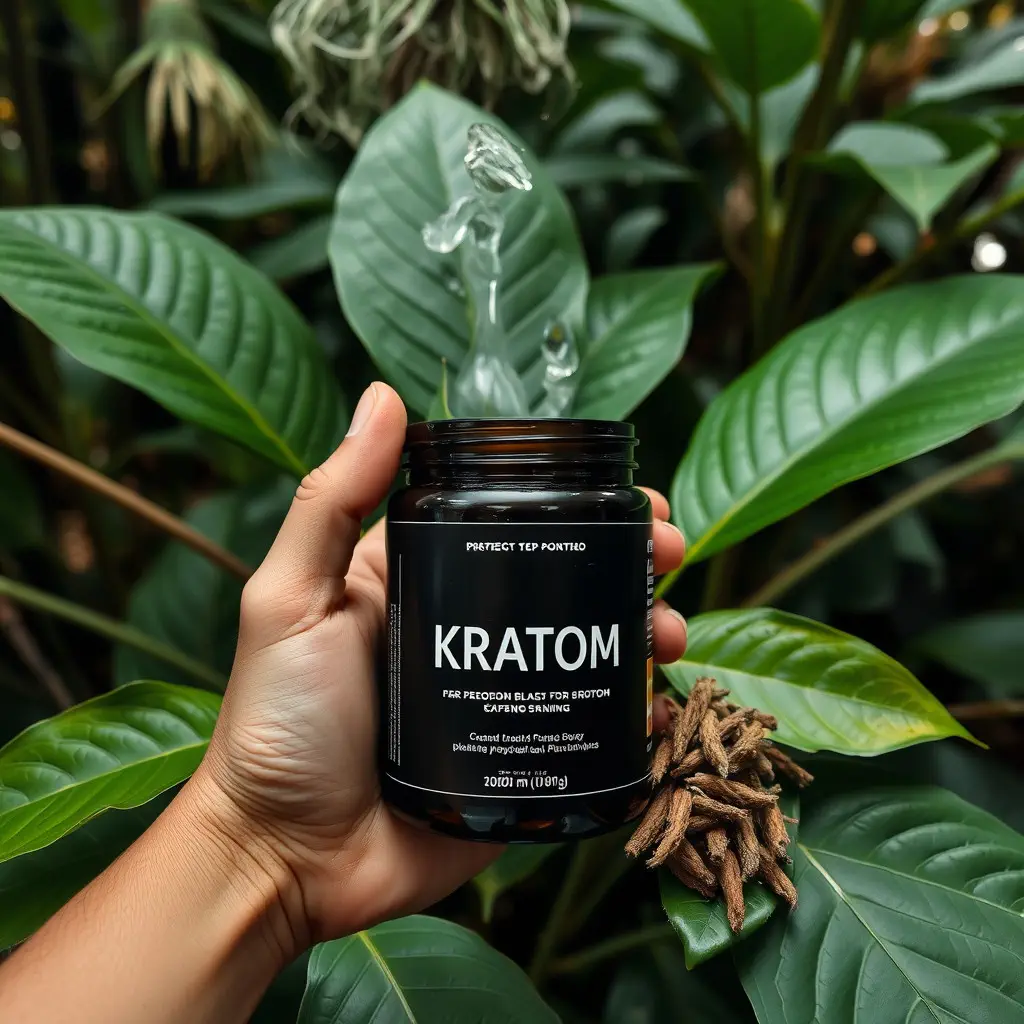Opioid withdrawal is a difficult process with intense physical and emotional symptoms. Kratom, a natural herb from Mitragyna speciosa, has emerged as an alternative treatment due to its analgesic and stimulant properties. Modern technology like herb capsule filling machines enhances the accessibility and standardization of kratom capsules, making it a convenient option for managing withdrawal. While research is ongoing, these machines contribute to safer, personalized use of kratom under medical supervision, addressing the growing need for opioid withdrawal treatments.
“Kratom, derived from the tropical plant Mitragyna speciosa, has emerged as a potential natural solution for managing opioid withdrawal symptoms. In this comprehensive guide, we explore the science behind kratom’s effectiveness in alleviating withdrawal, its rising popularity, and the crucial role of herb capsule filling machines in ensuring consistent, safe dosage distribution. From understanding opioid withdrawal’s complexities to delving into kratom’s mechanism of action, this article offers insights for those seeking alternative relief.”
- Understanding Opioid Withdrawal and Kratom's Role
- How Herb Capsule Filling Machines Facilitate Distribution
- Safety Considerations and Future Prospects of Kratom in Medical Use
Understanding Opioid Withdrawal and Kratom's Role
Opioid withdrawal is a complex process marked by intense physical and psychological symptoms as the body adjusts to reduced or stopped exposure to opioids. These symptoms can include nausea, vomiting, diarrhea, muscle aches, anxiety, and depression. In severe cases, withdrawal may lead to restless leg syndrome, insomnia, and even seizures. Understanding opioid withdrawal is crucial for effective management and support.
Kratom, derived from the plant Mitragyna speciosa, has emerged as a potential natural alternative for mitigating opioid withdrawal symptoms. This herb has been used traditionally in Southeast Asia and has gained attention for its analgesic and stimulant properties. In modern times, kratom is available in various forms, including capsules filled by efficient herb capsule filling machines, making it accessible to those seeking relief from withdrawal. Research suggests that kratom’s active compounds interact with opioid receptors, helping to alleviate withdrawal-related discomfort while providing a sense of calm and well-being.
How Herb Capsule Filling Machines Facilitate Distribution
In the context of opioid withdrawal, efficient distribution channels play a vital role in ensuring accessibility to alternative treatments like Kratom. Herb capsule filling machines have emerged as game-changers in this regard, revolutionizing how medicinal herbs are packaged and dispensed. These innovative machines streamline the process of encapsulating kratom powder into capsules, making it easier for manufacturers and distributors to meet the growing demand. By automating the filling process, they enhance productivity while maintaining consistency in capsule strength and quality.
This technology not only facilitates large-scale production but also caters to customized packaging needs. Distributors can now offer various potencies and formulations tailored to individual patient requirements, making Kratom a more appealing option for managing opioid withdrawal symptoms. The use of herb capsule filling machines, therefore, contributes significantly to the accessibility and customization of natural remedies in the fight against opioid addiction.
Safety Considerations and Future Prospects of Kratom in Medical Use
Kratom, derived from the leaves of the Mitragyna speciosa plant, has gained attention as a potential treatment for opioid withdrawal symptoms. While many turn to it as an alternative solution, safety considerations remain paramount. Research into its long-term effects is limited, and proper dosage can be tricky, emphasizing the need for caution. Misuse or overuse may lead to adverse reactions, underscoring the importance of medical supervision and further study.
Looking ahead, advancements in processing techniques, such as efficient herb capsule filling machines, could enhance kratom’s availability and standardization. This technology ensures consistent dosing, improving patient safety and potentially paving the way for more comprehensive medical integration. As research expands, understanding the plant’s complex chemistry will be crucial in unlocking its full potential while ensuring responsible use in treating opioid withdrawal and other conditions.
Kratom holds promise as a natural alternative for managing opioid withdrawal symptoms, offering a potential path to recovery. While safety concerns exist, further research and responsible distribution methods, aided by advancements in packaging technology like herb capsule filling machines, could expand its medical applications. These machines streamline the production of kratom capsules, ensuring consistency and quality, which is crucial for its therapeutic use. With careful navigation, kratom may play a significant role in mitigating opioid withdrawal, providing a safer, herbal-based solution.






